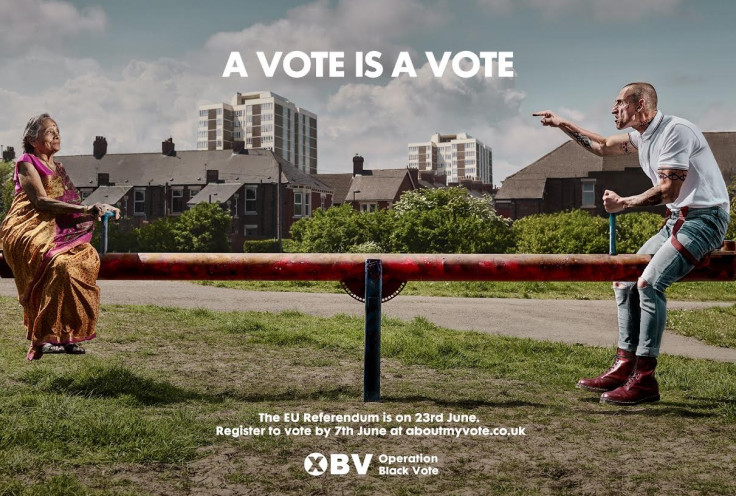EU referendum: ASA powerless to act over 'inaccurate, offensive' posters despite complaints
Remain and Leave groups have been attacked over campaigning in build-up to the 23 June referendum.

The UK advertising watchdog says it is powerless to take action over controversial campaign posters used in the build up to the EU referendum despite hundreds of complaints.
The Advertising Standards Authority (ASA) said 374 people had demanded that both Leave and Remain camps be investigated for producing misleading, inaccurate and offensive campaign ads.
This includes 177 complaints over material published by those pushing for Brexit, the highest of any group, and 45 against Remain ads.
Both Remain and Leave groups have been attacked over the quality of campaigning in the build up to the 23 June referendum with allegations voters were misled with inaccurate figures or fed discriminatory slogans.
The official Leave campaign group has recently come under attack for having produced a poster claiming £350m of weekly contributions to Brussels would instead be spent on the NHS.
Prominent Leave campaigners Iain Duncan Smith MP and Liam Fox MP have since distanced themselves from the claim.
Ukip leader Nigel Farage also came under attack after he separately campaigned alongside a controversial poster produced by his party showing a queue of migrants trying to enter the EU. It was criticised by both official Leave campaigners and Remain supporters as "disgusting", with the Unison union referring it to the police after claiming it broke hate speech laws.
The Remain camp has also been accused of scaremongering after campaigning alongside "inaccurate" claims over the negative economic impact of Brexit.
Separately, Operation Black Vote's "white thug" poster, which intended to encourage ethnic minorities to register to vote, prompted 145 complaints that it was racist and discriminatory against the white man featured.

The ASA, which received seven other complaints about the general campaign, said it was powerless to reprimand those responsible for the posters, saying political advertising doesn't fall within the regulator's remit. The body told IBTimes UK it instead tries to remind political campaigners of the rules governing advertisers in a purely advisory role.
Until 1999, non-broadcast political advertising was subject to the Advertising Code. The ASA says this ended for a number of reasons, including that it risked violating the 1998 Human Rights Act by restraining the freedom of political speech around democratic elections and referendum. There was also an absence of consensus at the time between the Labour, Conservative and Liberal Democrat Parties to bring political advertising wholly within the scope of the Code.
In 2003, a consultation by the Electoral Commission concluded the ASA should not be responsible for regulating election advertising, but failed to set up a new regulatory body. A spokeswoman for the Electoral Commission said there were no plans to launch a new consultation following the Brexit campaign.
A petition on the parliament website calling for a new law making it illegal for political figures to knowingly lie or mislead the public has so far been signed by more than 56,000 people – more than half the 100,000 needed until MPs will be forced to discuss it in the House of Commons.
"The general population of the UK are tired of listening to outright lies and misrepresentation from the political elite in order to gain votes," the petition says. "With a more honest representation of facts our democracy would hand power back to the people it governs."
© Copyright IBTimes 2025. All rights reserved.






















